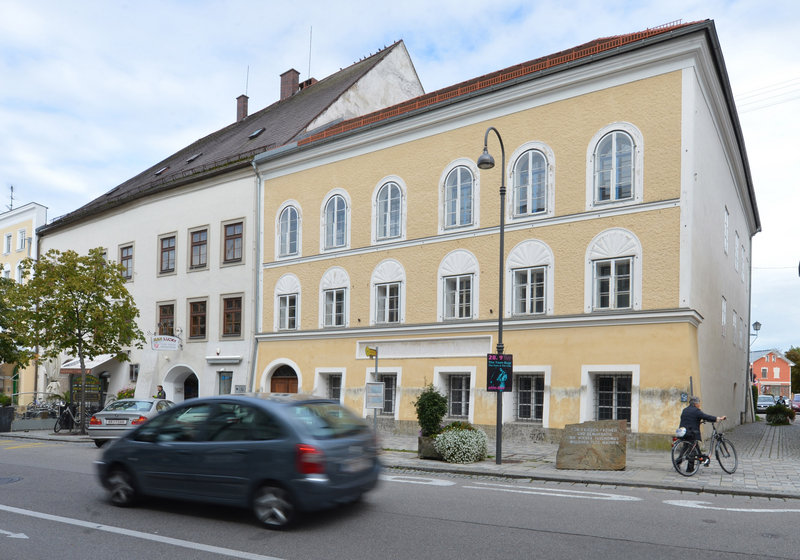BRAUNAU, Austria – Living space in Braunau is scarce, but an imposing Renaissance-era building stands empty in this post-card pretty Austrian town because of the sinister shadow cast by a former tenant: Adolf Hitler.
With its thick walls, huge arched doorway and deep-set windows, the 500-year-old house near the town square would normally be prime property. Because Hitler was born here, it has become a huge headache for town fathers forced into deciding what to do with a landmark so intimately linked to evil.
The building was most recently used as a workshop for the mentally handicapped, which some saw as atonement for the murders of tens of thousands of disabled people by the Nazi regime. But that tenant moved out last year for more modern quarters.
The departure reignited debate on what to do with the house that burst from the town hall chamber into the public domain last week after the mayor declared that he preferred creating apartments over turning the building into an anti-Nazi memorial.
“We are already stigmatized,” Johannes Waidbacher told the Austrian daily Der Standard. “We, as the town of Braunau, are not ready to assume responsibility for the outbreak of World War II.”
That sparked a storm of criticism, with Waidbacher accused of trying to bury memories of the Nazi past.
The comments were particularly ill-received due to the fact that Braunau’s town council only withdrew honorary citizenship from Hitler last year, 78 years after the Nazi dictator was given the accolade – as did nearly a dozen other towns and cities after checking their archives.
Stung by the criticism, Waidbacher has since stepped back, saying he can conceive of “all possible uses” for the building.
On Thursday, Waidbacher expressed surprise at the vehement reaction his comments caused, saying he did not mean to make light of the significance of the house. “Our town has definitely done its homework as far as its past is concerned,” he told The Associated Press.
Nonetheless, concerns about the building’s fate continue to reverberate on the ancient cobble-stoned streets of this town of 16,600.
One major fear: The house could fill up with Hitler worshippers if converted into living space.
“These are certainly people we don’t want here,” said town council member Harry Buchmayr, noting that most visitors are not normal tourists but neo-Nazis stopping to pay homage to Hitler, even though he spent only the first few months of his life in the building.
Georg Hoedl, 88, recalls Hitler as the man who dragged depression-era Austria and Germany out of the kind of abject poverty that forced him to go begging. But he also is aware of the evil Hitler spawned. “There should be something else inside, something cultural. But apartments – I’m not for that,” he said.
Austria’s Interior Ministry has rented the house since 1972 from the owner, a woman in her 60s who refuses to be identified publicly. The ministry has been careful to sublet only to tenants with no history of admiring Hitler.
The owner refused a request by Braunau officials to let the city mount a sign on the house warning of the evils of the Nazi past.
The building still has the initials MB in the iron grillwork above the massive wooden doorway. It stands for Martin Bormann, Hitler’s private secretary, who bought the house shortly before World War II with thoughts of turning it into a shrine to the dictator.
Send questions/comments to the editors.



Success. Please wait for the page to reload. If the page does not reload within 5 seconds, please refresh the page.
Enter your email and password to access comments.
Hi, to comment on stories you must . This profile is in addition to your subscription and website login.
Already have a commenting profile? .
Invalid username/password.
Please check your email to confirm and complete your registration.
Only subscribers are eligible to post comments. Please subscribe or login first for digital access. Here’s why.
Use the form below to reset your password. When you've submitted your account email, we will send an email with a reset code.